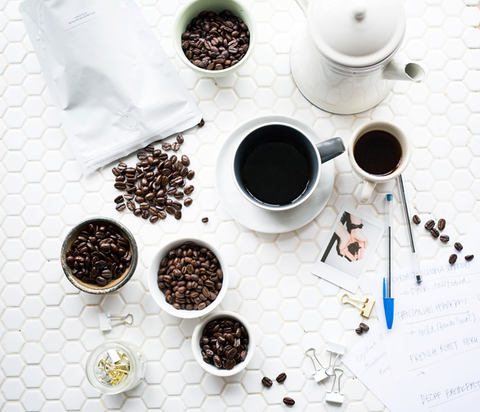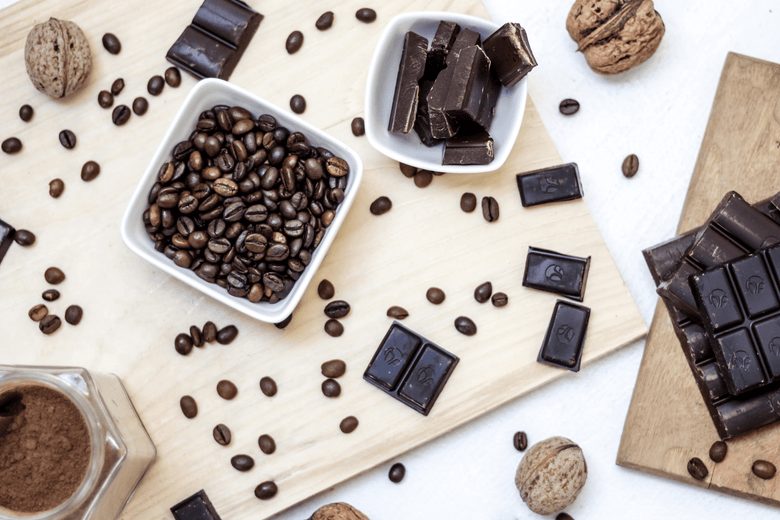We both know what the classic cup of diner coffee tastes like: weak, dark, and bitter. Bitterness in coffee is generally associated with bad coffee from the good ol’ days before specialty roasters, home coffee grinders, and hip pour over devices. However, bitterness doesn’t have to be a bad thing.
Believe it or not, the best coffees in the world have a hint of bitterness (the good kind).
In freshly roasted and ground coffee, a gentle bitterness can wrap flavors together, round out sweetness and acidity, and contribute towards the thick body of coffee. It’s not something to be avoided at all costs. It’s a time to appreciate in moderation and context.
This blog on coffee bitterness is part of our Coffee Tasting Series. I suggest you take a look at the beginning if you’re just jumping in.
If you want to know how to taste the difference between good and bad bitterness, read on.
The Bad Kind Of Bitterness
Bitterness in coffee is the result of 21 known sources. Caffeine, certain acids, proteins, and alcohols are some of the main contributors to bitterness, but chlorogenic acid is the primary source.
When these elements are extracted from the coffee beans in excess, they overpower the sugars and aromas. This causes your coffee to be overly bitter and unpleasant.
There are a few ways we get bitter coffee. Though it always begins at the farm, we’ll focus on the two ways that are closer to home.
Bitterness From Roasting
When coffee beans are roasted, thousands of chemical reactions take place over the course of several minutes. Most of these reactions we want to happen in a specific order to produce sweet, balanced coffee that stays true to the farm it came from. Some of these reactions we want to avoid entirely.
One particularly damaging reaction is when chlorogenic acids break down into phenyl indanes in dark roasted coffee. Chlorogenic acids are already quite bitter, but when they are heated over 425+ degrees, they form even more bitter phenyl indanes.
Most specialty coffee roasters avoid roasting their coffee very dark in order to avoid that bitterness-increasing chemical reaction.
Read: What Does A Coffee Roaster Actually Do?
Though we typically associate bitterness with ashy, burned, over roasted coffee, coffee can be roasted too lightly as well. These coffees have more of a grassy bitterness, which is just as unpleasant.
Avoid these two extremes if you’re a fan of rich, balanced, and sweet coffee. Unfortunately, this rules out most supermarkets and non-specialty coffee shops, whose roasters roast coffee to that point of unbalanced bitterness to hide the weird flavors of low quality coffee beans.
Bitterness From Brewing
Even if your coffee was grown and roasted by the most skilled professionals in the world, you can still make it bitter if you’re not careful.
Coffee stays at peak freshness for two to three weeks after being roasted. After this period, the flavors decay rapidly, resulting in a muddy, bitter tasting coffee. I cannot overstate how important it is to use freshly roasted and freshly ground coffee if you want to experience a coffee at its peak flavor and freshness!
It’s pretty easy to over brew your coffee by using the wrong grind size, letting the coffee brew for too long, or using water that’s too hot. All of these cause your final cup to be overly bitter, because you literally pull out too much of the bitter stuff (caffeine, acids, and such).
If you think you may be over brewing your coffee, don’t worry! We’d love to help you bring balance back to your coffee. These may help:
- How To: The Golden Ratio in Coffee Brewing
- How To Pair Your Coffee Brewer With Its Perfect Grind Size

The Good Kind Of Bitterness
The kind of bitterness we want in our coffee is smooth and deep. It rounds out flavors, brings balance to bright acids, and adds complexity.
Just like with sweetness or acidity, describing bitterness is easiest when you pair it with the flavors found naturally in the coffee. Let me give you a few examples:
I once had a coffee from El Salvador with a bright orange note, gentle sweetness, and floral acidity. To round out the coffee’s flavor, there was a slight and pleasant orangey bitterness that reminded me of the bitterness that some oranges have.
A Sumatran coffee I had a couple years ago had a really woody and spicy flavor profile with a bitterness that reminded me of star anise or licorice. It was complex and interesting.
Read: Why Your Grinder Is The Most Important Piece of Coffee Gear
Some coffees have a deep bitterness reminiscent of dark chocolate. Some have a tart bitterness like that of a grapefruit. Sometimes the bitterness is fermented like low-quality wine.
If you find yourself struggling to describe a coffee’s bitterness, ask the magic question:
What does this remind me of?
All Things In Moderation - Even Bitterness
Bitterness, in moderation, can be a good thing in coffee. Like with everything else, it’s all about finding the balance. If you can learn to taste and appreciate balanced bitterness in coffee, you can learn to appreciate anything.
I encourage you to find ways to appreciate other things in your life that you typically consider to be unpleasant. Let coffee be the starting point for learning to feel gratitude, even in the less pleasant aspects of life.
Next up in the How to Taste Coffee Series: Aroma!
Happy tasting!


